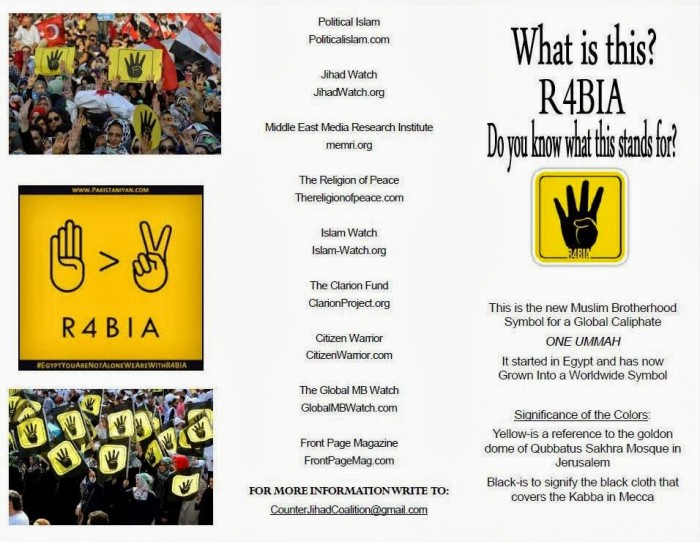Since the
2011 Arab uprisings began, the Muslim Brotherhood has played a disruptive yet
integral part in the political unrest in Bahrain, Egypt and Tunisia. The group
has many members across the globe and is highly organized. However, given their
impressionable popularity and unity, they are very controversial. Criticism of
their motives leaves conflict-ridden countries more divisive. Instead of using
their political power to unite citizens, they choose to utilize their power in
contentious ways and not compromise. This is reminiscent of old regimes and
misuse of political power. The Muslim Brotherhood’s antagonistic ways only
leads to more troublesome outcomes as opposed to harmonious progression. The
history of The Muslim Brotherhood began in 1928. With a renewal of fundamental
Islam, they organized with grass roots effort in an underground, secretive way.
According to the encyclopedia of Muslim Brotherhood, we learn that on “June 11th,
1937 the weekly Muslim Brotherhood’s newspaper stated the Brotherhood had
divided the world into regions and each region into districts assigned to
certain people.” Popularity grew quickly has the focus of the group was to
maintain family values and encourage education. The Brotherhood did this by
originally becoming proponents of education. By following this avenue of
spreading their mission in schools, The Brotherhood gained popularity with
young people.

Bahrain in particular seemed to be a place where
the Brotherhood was well-liked and garnering support. One main factor of the
group’s growth in Bahrain was due to a social club called Al-Eslah Club. This club
began by the Brotherhood and offered social service needs to Bahrain’s
citizens. It is interesting to consider these possible sincere motives of the
Brotherhood, when reading recent headlines. Currently, Bahrain has joined
forces with Saudi Arabia and the United Arab Emirates in a strong united fight
against the Muslim Brotherhood. Though it seems the Brotherhood has as not
caused many issues with Bahrain, the Foreign Prime Minister, Shaikh Khalid emphasized
“that whatever poses a threat to the security and stability of brotherly Saudi
Arabia and the UAE affects directly those of Bahrain, and vice versa, and
whoever holds hostility towards them is undoubtedly our enemy.”
Though the Brotherhood has not caused
many issues with Bahrain, Saudi Arabia or the UAE, they have certainly caused a
commotion in Egypt. After the over throwing of Mubarak, the Brotherhood tried
to gain a stronger political foothold. Only to have their efforts be in vain,
as the military violently constrained their progress. The Muslim Brotherhood
continues to fight back fiercely, losing any sense of genuineness to the people
of Egypt. Both sides of the turmoil in Egypt should be scrutinized. As the
Muslim Brotherhood has a large following, about a third of the populous of
Egypt claim to be in the Muslim Brotherhood, many of them doctors, architects,
and young people who fought in the uprisings.
The Muslim Brotherhood has even
more sympathizers around the world.
The Muslim Brotherhood is considered a terrorist organization
to the political power force of Egypt’s Prime Minister Sisi. It seems that a
big factor in the demise of the Brotherhood is that the leader of Egypt
strongly dislikes the group. Sisi was quoted as saying “we have bent over
backwards to bring the Brotherhood in.” Perhaps this vendetta is due to the
fact that Sisi’s former leaders are accused to have an unsavory past with the
Brotherhood. This information could perpetuate an opportunistic advantage to bring
fault to the Brotherhood in hopes to expose their perceived intolerant ways.
The Brotherhood often retaliates in a less then diplomatic ways, and the cycle
continues to no one’s avail.
Shifting gears again to another view of the Brotherhood, lands us in
Tunisia. The Brotherhood in Tunisia is considered a moderate Islamic
organization. In fact, according to some the Brotherhood upholds a type of
“political pluralism” that seems to be identifying Tunisia.(Crethi Plethi) A
society based on “tolerance, freedom and democracy.” Where the Muslim Brotherhood
supported a 1956 push for equal rights for women. It seems as though the
Brotherhood’s power is growing in Tunisia, to the point where others are not
stepping up in leadership roles.
These
three countries show drastic contrasts or how the Muslim Brotherhood is
perceived in their country. Bahrain seems to be stuck in the middle of a mess
between its allies and the Brotherhood. Uniting against the Brotherhood, could
be the best for them, or at least to keep their neighbors content. In Egypt,
the Brotherhood is considered a violent group that must be stopped at all
costs. Due to their fundamentalist philosophies, they are considered a
significant detriment to the growth of the country. Tunisia sees the
Brotherhood as an empower group to offer social services and promote democracy.

The conflicting views and
opposing points, makes it difficult to see where the Brotherhood does good or
increases violence. It is interesting to see the differing perceptions of the
organization. It is true to consider each countries relationship with the
Brotherhood, separate from another. Just as it will strength foreign
relationships if each country, in the West or the East is separate from each
other? As easy as it would be to allow the Muslim Brotherhood split the globe,
it is important to remember that they also have followers globally. Regardless
of its perception, The Muslim Brotherhood is popular, instead of allowing the
group to harm society; it would be beneficial to examine what the draw is to
attract followers.
Works
Cited
cnn.com/2013/07/03/world/africa/egypt-muslim-brotherhood-explainer/index.html
Fahim,
Kareem. "Egypt, Dealing a Blow to the Mulsim Brotherhood, Deems It a
Terrorist Group." New York times [New York City] 25 Dec. 2013: n. pag.
Print.
Fahim, Kareem. "The Muslim Brotherhood,
Back in Afight to Survive." New York Times [New York] 5 Jan. 2014: n. pag.
Print.
Kirkpatrick, David. "Egyptian Court Shuts
Down the Muslim Brotherhood and Seizes Its Assets." New York Times [New
York] 23 Sept. 2013: n. pag. Print.
Remnick, David. "Days of Rage." The
New Yorker 28 Aug. 2013: n. pag. Print.









No comments:
Post a Comment